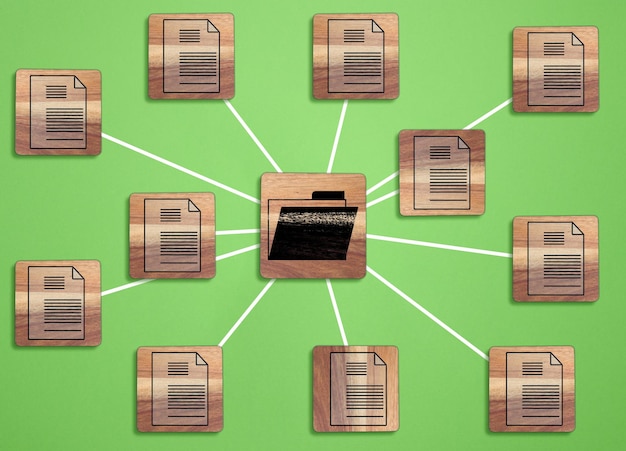Navigating New Federal Data Privacy Regulations in 2025

AD
New Federal Regulations on Data Privacy in 2025 are poised to reshape how businesses handle personal data, emphasizing transparency, individual rights, and stricter enforcement, impacting everything from data collection practices to consumer rights and requiring companies to adapt to avoid penalties.
The landscape of data privacy is constantly evolving, and 2025 is set to bring significant changes with the introduction of New Federal Regulations on Data Privacy: What the Latest Changes Mean for You in 2025. Businesses and individuals alike need to understand these upcoming regulations to ensure compliance and protect their data.
AD
Understanding the Impetus Behind New Data Privacy Regulations
The need for robust data privacy regulations has become increasingly apparent in recent years. The rise of data breaches, identity theft, and the misuse of personal information have prompted lawmakers to take action. These new regulations are designed to address these concerns and establish a comprehensive framework for data protection.
The Growing Public Concern Over Data Privacy
Public awareness of data privacy issues has surged, fueled by high-profile incidents involving major corporations. Consumers are more conscious of how their data is collected, used, and shared. This heightened awareness has created a demand for greater control over personal information and increased accountability from organizations.
AD
Legislative Efforts to Protect Consumer Data
Several states have already enacted their own data privacy laws, such as the California Consumer Privacy Act (CCPA) and the Virginia Consumer Data Protection Act (CDPA). However, a federal law is needed to create a consistent and uniform standard across the country. The New Federal Regulations on Data Privacy: What the Latest Changes Mean for You in 2025 aim to fill this gap and provide a national framework for data protection.
- Establish a national standard for data privacy, ensuring uniformity and consistency across all states.
- Grant consumers greater control over their personal information, including the right to access, correct, and delete their data.
- Increase accountability for organizations, requiring them to implement reasonable security measures to protect personal data.
- Provide for stronger enforcement mechanisms, including the ability to impose significant penalties for non-compliance.
In conclusion, the impetus behind New Federal Regulations on Data Privacy: What the Latest Changes Mean for You in 2025 stems from growing public concern and the need for a unified approach to data protection. These regulations are poised to reshape the data privacy landscape and provide greater protections for consumers.
Key Provisions of the 2025 Data Privacy Regulations
The New Federal Regulations on Data Privacy: What the Latest Changes Mean for You in 2025 encompass several key provisions that will significantly impact how organizations handle personal data. These provisions cover a wide range of topics, including data collection, usage, storage, and disclosure.

One of the core principles of these regulations is transparency. Organizations will be required to provide clear and concise information to consumers about their data practices. This includes disclosing the types of data collected, the purposes for which it is used, and the entities with whom it is shared.
Enhanced Consumer Rights
The new regulations significantly enhance consumer rights regarding their personal data. Consumers will have the right to access their data, correct inaccuracies, and request deletion of their data. They will also have the right to opt out of the sale of their data to third parties and to restrict certain types of data processing.
Data Security Requirements
Organizations will be required to implement reasonable security measures to protect personal data from unauthorized access, use, or disclosure. These measures must be appropriate to the sensitivity of the data and the nature of the organization’s activities. This includes implementing technical, administrative, and physical safeguards to protect data.
- Data Minimization: Organizations should only collect and retain data that is necessary for the specified purpose.
- Data Security: Implement robust security measures to protect data from unauthorized access and breaches.
- Transparency: Provide clear and concise information to individuals about data processing practices.
- Individual Rights: Respect individuals’ rights to access, correct, and delete their personal data.
In summary, the key provisions of the New Federal Regulations on Data Privacy: What the Latest Changes Mean for You in 2025 focus on enhancing consumer rights, promoting data security, and increasing transparency in data practices. Organizations must familiarize themselves with these provisions to ensure compliance.
Who is Affected by the New Regulations?
The scope of the New Federal Regulations on Data Privacy: What the Latest Changes Mean for You in 2025 is broad, affecting a wide range of organizations and individuals. Understanding who is subject to these regulations is crucial for ensuring compliance and avoiding potential penalties.
The regulations primarily target organizations that collect, process, or store personal data of US residents. This includes businesses of all sizes, non-profit organizations, and government agencies. The regulations apply regardless of where the organization is located, as long as it processes data of US residents.
Businesses and Organizations
Any business that collects personal data from US residents is subject to the new regulations. This includes online retailers, social media companies, healthcare providers, financial institutions, and educational institutions. The regulations also apply to organizations that process data on behalf of other entities, such as data processors and cloud service providers.
Individuals and Consumers
The new regulations are primarily designed to protect the privacy rights of individuals and consumers. Individuals have the right to control their personal data and to hold organizations accountable for their data practices. These rights are enforceable through legal action and regulatory oversight.
- Small Businesses: Even small businesses that collect customer data through websites or online transactions must comply.
- Large Corporations: Large corporations with extensive data processing operations will face heightened scrutiny and compliance requirements.
- Data Processors: Organizations that process data on behalf of other entities are also subject to the new regulations.
- Government Agencies: Federal, state, and local government entities must also comply with the data privacy regulations.
In conclusion, the New Federal Regulations on Data Privacy: What the Latest Changes Mean for You in 2025 affect a broad range of entities, from businesses and organizations to individuals and consumers. All stakeholders must understand their rights and responsibilities under these regulations to ensure compliance and protect data privacy.
What Steps Should Businesses Take to Prepare?
Preparing for the New Federal Regulations on Data Privacy: What the Latest Changes Mean for You in 2025 requires a proactive and comprehensive approach. Businesses must take steps to assess their current data practices, identify compliance gaps, and implement necessary changes to meet the requirements of the new regulations.

The first step is to conduct a data privacy audit. This involves reviewing the organization’s data collection, processing, and storage practices to identify areas that may not comply with the new regulations. The audit should also assess the organization’s data security measures and identify any vulnerabilities.
Update Privacy Policies and Practices
Businesses must update their privacy policies to reflect the new requirements of the data privacy regulations. The privacy policy should clearly and concisely explain the types of data collected, how it is used, and the rights of individuals regarding their data. It should also provide information on how individuals can exercise their rights, such as accessing, correcting, or deleting their data.
Implement Data Security Measures
Organizations must implement reasonable security measures to protect personal data from unauthorized access, use, or disclosure. This includes implementing technical safeguards, such as encryption and access controls, as well as administrative safeguards, such as employee training and data security policies. Physical safeguards, such as secure storage facilities, may also be necessary.
- Conduct a Data Audit: Identify what data you collect, where it’s stored, and how it’s used.
- Update Privacy Policy: Ensure your privacy policy is clear, concise, and compliant with the new regulations.
- Data Security: Implement and maintain robust security measures to protect data.
- Train Employees: Educate employees on data privacy requirements and best practices.
In summary, businesses should take proactive steps to prepare for the New Federal Regulations on Data Privacy: What the Latest Changes Mean for You in 2025. This includes conducting a data privacy audit, updating privacy policies, implementing data security measures, and training employees. By taking these steps, businesses can ensure compliance and protect the privacy rights of individuals.
Potential Penalties for Non-Compliance
Failure to comply with the New Federal Regulations on Data Privacy: What the Latest Changes Mean for You in 2025 can result in significant penalties. These penalties are designed to incentivize compliance and deter organizations from engaging in unlawful data practices. Understanding the potential consequences of non-compliance is crucial for businesses.
The penalties for non-compliance vary depending on the severity of the violation and the size of the organization. However, they can include substantial fines, legal action, and reputational damage. In some cases, organizations may also be subject to injunctive relief, which requires them to take specific actions to remedy the violation.
Financial Penalties
The financial penalties for non-compliance can be significant. Organizations may be subject to fines per violation, which can quickly add up for large-scale data breaches or systemic failures to comply with the regulations. The exact amount of the fines will depend on the specific provisions of the regulations and the severity of the violation.
Legal Action and Lawsuits
Individuals who have been harmed by violations of the data privacy regulations may also bring legal action against the organization. This can result in costly lawsuits and settlements, as well as damage to the organization’s reputation. Class-action lawsuits are also possible, which can significantly increase the financial exposure of the organization.
- Substantial Fines: Penalties can include fines per violation, leading to significant financial burdens.
- Legal Repercussions: Non-compliance can result in lawsuits and legal action from affected individuals.
- Reputational Damage: Data breaches and privacy violations can severely damage an organization’s reputation.
- Injunctive Relief: Courts may order organizations to take specific actions to remedy violations.
In conclusion, non-compliance with the New Federal Regulations on Data Privacy: What the Latest Changes Mean for You in 2025 can result in significant penalties, including financial fines, legal action, and reputational damage. Organizations must prioritize compliance to avoid these consequences and protect the privacy rights of individuals.
The Long-Term Impact on Data Handling Practices
The introduction of the New Federal Regulations on Data Privacy: What the Latest Changes Mean for You in 2025 is expected to have a profound and lasting impact on data handling practices across various industries. These regulations will likely reshape the way organizations collect, process, and store personal data, leading to greater transparency, accountability, and security.
One of the key long-term effects will be a shift towards data minimization. Organizations will be incentivized to collect only the data that is strictly necessary for the specified purpose, rather than accumulating vast amounts of personal information. This will reduce the risk of data breaches and limit the potential harm from privacy violations.
Increased Transparency and Accountability
The regulations will also promote greater transparency and accountability in data handling practices. Organizations will be required to provide clear and concise information to individuals about their data practices, including the types of data collected, the purposes for which it is used, and the entities with whom it is shared. This will empower individuals to make informed decisions about their data and hold organizations accountable for their actions.
Enhanced Data Security Measures
The new regulations will drive organizations to invest in enhanced data security measures to protect personal data from unauthorized access, use, or disclosure. This includes implementing technical safeguards, such as encryption and access controls, as well as administrative safeguards, such as employee training and data security policies. Physical safeguards, such as secure storage facilities, may also be necessary.
- Data Minimization: Organizations will collect only necessary data, reducing risks and liabilities.
- Transparency: Clear data practices will foster trust and compliance.
- Enhanced Security: Stricter security measures will protect personal data from breaches.
- Consumer Trust: Increased privacy protections will build and maintain consumer trust.
In conclusion, the New Federal Regulations on Data Privacy: What the Latest Changes Mean for You in 2025 are expected to have a lasting impact on data handling practices. These regulations will promote data minimization, increase transparency and accountability, and drive organizations to invest in enhanced data security measures, ultimately leading to greater protection for individuals’ privacy rights.
| Key Point | Brief Description |
|---|---|
| 🛡️ New Regulations | Federal data privacy rules coming in 2025. |
| 🧑⚖️ Consumer Rights | Enhanced rights to access, correct, and delete data. |
| 🏢 Business Prep | Businesses must audit data practices and update policies. |
| 💰 Penalties | Non-compliance can result in significant fines and legal action. |
Frequently Asked Questions (FAQ)
▼
The new regulations emphasize increased transparency, enhanced consumer rights including data access and deletion, and stricter data security requirements for businesses. Companies must also be more explicit about data usage.
▼
Any organization that collects, processes, or stores personal data of US residents, regardless of size or location, is required to comply with the new federal regulations. This includes businesses, non-profits, and government entities.
▼
Businesses should conduct a data audit, update their privacy policies, implement robust security measures, train their employees, and establish clear procedures for handling data requests from individuals to comply effectively.
▼
Non-compliance can lead to substantial financial penalties, legal action, and reputational damage. Fines can be levied per violation, potentially amounting to significant sums for large-scale breaches or systemic failures.
▼
Consumers will have enhanced rights, including the ability to access their data, correct inaccuracies, and request deletion. They’ll also have the right to opt-out of data sales to third parties and restrict certain data processing activities.
Conclusion
As 2025 approaches, understanding and preparing for the New Federal Regulations on Data Privacy: What the Latest Changes Mean for You in 2025 is paramount. By staying informed and proactive, businesses and individuals can navigate these changes effectively, ensuring compliance and safeguarding data privacy rights.